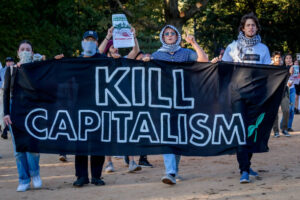COVID-19 has thrown up a gigantic challenge for labour across the world, writes Muhammad Azam Nagra
May 1, popularly known as Labour Day, is marked every year to celebrate achievements of workers in their struggle for their fundamental rights. But this year, International Labour Day was celebrated at a time when tens of millions of workers across the world have lost their jobs in the wake of the recession caused by the Coronavirus pandemic. According to an International Labour Organisation (ILO) report, about 2.7 billion workers will be affected by the coronavirus pandemic and these workers represent around 81 percent of the world’s workforce.
COVID-19 has thrown up a gigantic challenge for labour across the world; joblessness is growing as governments have shut down economies as part of measures to stop the spread of the contagion. Economic experts say the world economy will take a few years to recover. Even then, not all jobs will be revived, leaving massive numbers unemployed. Over 100 million more people are expected to fall below the poverty line.
The situation in Pakistan is no different. With most factories closed and economic growth projected to contract by 1.5 percent for the first time in 68 years, the next few years offer little hope to the working classes. The federal Planning and Development Ministry has already estimated job losses resulting from the COVID-19 lockdowns at 18 million or more, mostly daily wage earners employed in informal services or industrial sectors. A third of these jobs will not be available when the lockdown is lifted and wheels of the economy are allowed to move at full steam. Even this is unlikely to happen for at least a year. Most people left jobless were already living on the margins.
Sadly in Pakistan, there is no one to raise their voices for workers owing to a fragmented labour rights movement which has been emaciated further by successive governments’ bias towards powerful business lobbies and investors, and weak implementation of whatever labour laws that do exist. Millions of our workers in the informal sector, or those hired on contract by businesses, are not allowed to unionise. These workers do not have collective bargaining rights in many sectors. In other sectors, legal requirements make it impossible to unionise labour.
Unions in most public-sector organisations have lost their power owing to the weakened financial position of their employers. The worst thing is that collective bargaining rights for labour are not on the agenda of any political party. It is obvious that when politicians talk about the economy, they are actually thinking about maximising profits of business owners, rather than improving the working and living conditions of labour in the country.
Workers will have to unite and raise their voices for their rights at national and international levels. Government should take emergency steps for protection of the rights of the working classes and improve living standards of the workers. The government should also make strict rules and laws against those who violate rights of the laborers. The government should also try to strike a balance between investors and workers so that both can make their vital contributions to the progress of the country.
In the present challenging time, when the working class has been affected badly due to the COVID-19 pandemic, the government should provide food and other necessary things to the working classes quickly. Employers need to realise that their business will prosper if they keep their employees happy.
The writer is an LLB student at Punjab University. He is also engaged in social and political work.
The Students’ Herald News Desk focuses on reporting the latest news regarding student politics and campus updates to you.
The News Desk can be reached at admin@thestudentsherald.com




